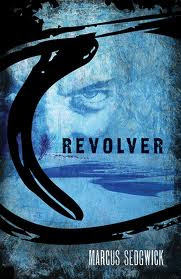Several students who took my GLBTQ YA Lit class this summer created a blog called "With a Little Help From Our Pens" in order to create a space where people can submit their stories, poems, etc. about GLBTQ issues.
http://withalittlehelpfromourpens.tumblr.com/
Collaborate – from the original Latin collaborare (col “together;” and laborare “to work, labor”): To work in conjunction with another or others, to co-operate; esp. in a literary or artistic production, or the like.
The verb “to collaborate” was our initial purpose. The four of us—all from different backgrounds and possessing different skill sets—found ourselves in a class together, studying GLBTQ young-adult fiction. From the critical perspective, the overriding focus on this genre seems to be that of examining and cataloging representation. Are the novels, stories, and narratives fair? Accurate? True? The consensus finds that GLBTQ fiction is moving in the “right” direction, but that representation, historically, has had many faults.
We thought: “We could write. We know what’s missing; what’s cliché; and what the previous authors have gotten wrong.” And so, our mission was to put together a collaborative anthology: fiction, non-fiction, criticism, and poetry. How are the roots of our assurance, however, any stronger than the authors who have gone before? Millions of people have the same thought about any given situation everyday: “I could do that.”
And we don’t want to focus on being the “same.” If we’re going to speak about difference, we must understand the meaning of difference. We realize that our stories are exactly that: ours. We could never write your story, even though that’s what we wanted; so, we invite you to write it yourself.
This space is the final product. We will christen it, so to speak, with the material that we prepared for the inceptive idea; but after that, it’s yours. We want your words, in whatever form is best for you. And we want your raw emotion, from one side of the spectrum to the other, for collaboration will not otherwise bring about fruition. While the process is “to work,” which can be joyful; it is also “to labor,” which involves struggle. There are so many different ways that you can collaborate with us. Of course, we look forward to your creative submissions, but we hope for much more. Make recommendations for the users of this community: show us websites with important information; tell us about books that moved you or spoke to you; share videos of your favorite author explaining his or her work. Give feedback to your peers; a key component of collaboration is support. Begin discussion forums so that authors know how they can better speak for and about GLBTQ young-adults.
We will update the forum every weekend, and we ask only that you whole-heartedly seek the understanding that we realized: there is no “right;” there is no “same;” difference is beautiful. Until we can teach this to the world, we’ll get by with a little help from our pens.
Guidelines & Regulations
This site is a safe space that is being monitored and moderated by the administrators and you are welcome to join us! Please take note of the following guidelines and regulations for a safe and productive experience at With a Little Help from Our Pens:
POST SAFELY:
--Never post or share your personal information online (this includes your full name, address, telephone number, email address, phone number, school name, parents’ names, credit card number, and/or social security number, etc.) or your friends’ personal information.
--Never share your Internet passwords with anyone, except your parents.
--Do not post photos of others without their permission.
--Never meet anyone face-to-face whom you only know online.
--Try to have an open communication with your parents about what you do online.
--Try not to write too specifically about yourself. For example, you could write “I’m in my local marching band” rather than “I’m in the Lincoln High Marching Band.”
POST RESPECTFULLY:
--Remember: We all have different experiences, perspectives, and identities that should be mutually considered when posting and respected as you use this site.
--Listen and think before you post.
--Don’t say anything that might be offensive to someone else.
--Be considerate and courteous of others and their perspectives.
POST SMARTLY
--Be mindful of grammar, spelling and punctuation.
--Be sure you clarify any abbreviations you might use.
--Be conscious and considerate not to post any spam, any inappropriate material or content, and any copyrighted material without a source.
--Unruly or unnecessary profanity will not be tolerated.
You will be removed from this site if any posted material contains any slurs, derogatory comments, or any inappropriate content.
--Remember: You are broadcasting yourself to the world—present yourself in the best possible light.
***The blog will be screened to remove disrespectful language and/or content. We reserve the right to delete any comments for any reason at our discretion and we reserve the right to warn, suspend, and/or remove individuals or groups that do not follow the above guidelines and regulations.





